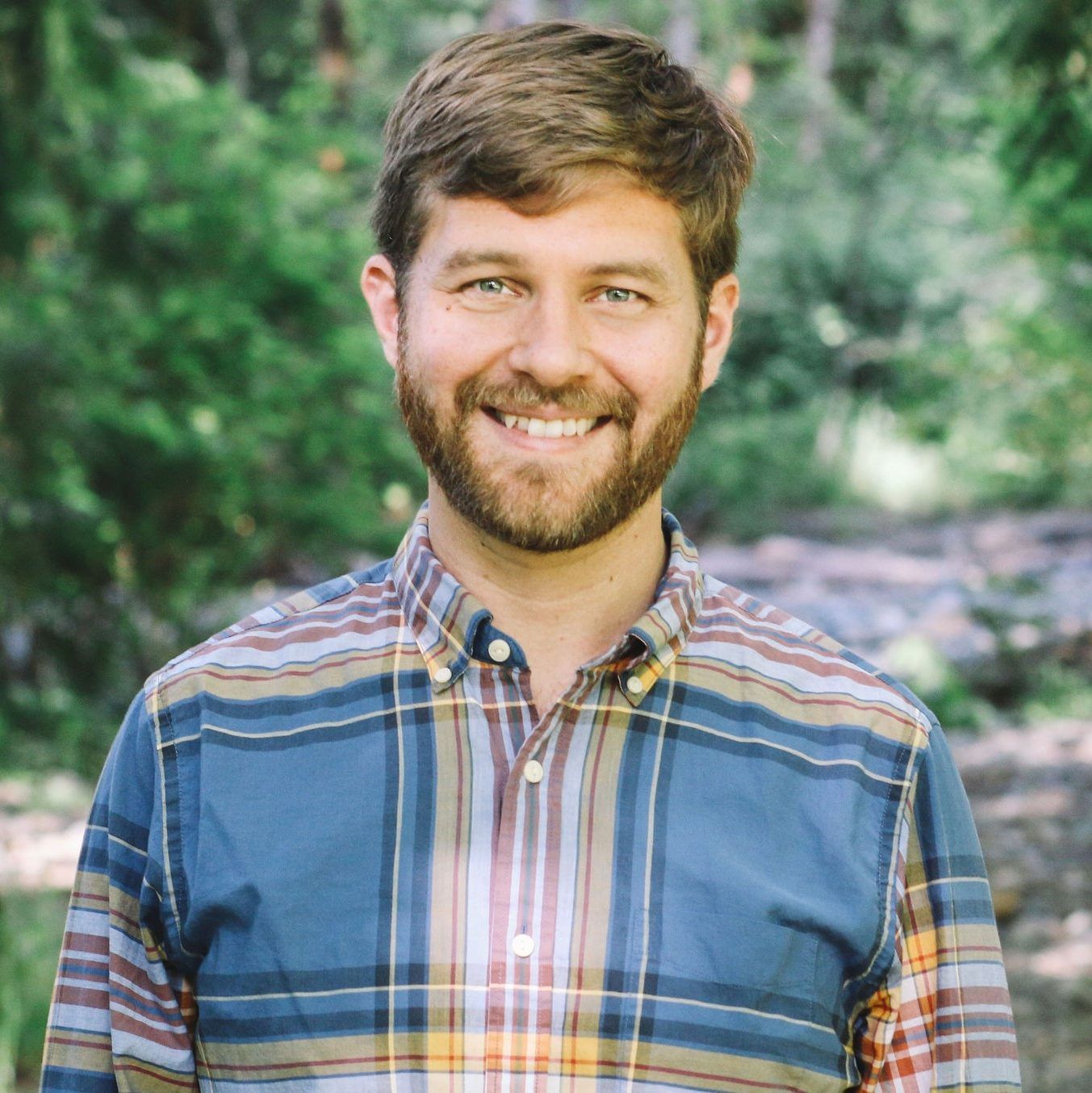Believing in Belovedness
Mar 13
/
Drew Dixon

As soon as Jesus was baptized, he went up out of the water. At that moment heaven was opened, and he saw the Spirit of God descending like a dove and alighting on him. And a voice from heaven said, "This is my Son, whom I love; with him I am well pleased." (Matthew 3:16-17 NIV)
I want to invite you to ponder a few essential questions…
Who are you?
An initial response to this may be to think of your name or a role you have, whether a job or relationship. There are several layers to who we are. On the outside, there is our reputation—that part of us that other people see. Going a bit deeper, there is our character—the part where our true desires reside before we filter them through reputation. If we're honest, we spend much of our time and energy managing our reputation because we want people to think of us a certain way, giving us a sense of control. We would do well to pay closer attention to character formation than managing reputation.
But let's go even deeper. Beyond reputations and desires—who are you? Psychologists have identified that when we are first born into the world, we do not realize that we exist. Babies have not yet differentiated themselves from their caregivers, so they need constant attention and connection. Somewhere along the way, babies make the profound discovery that they exist! They find their hands and fingers, stare at and chew on them. Then they discover their feet; they kick them and grab them. They are discovering the reality of their existence. But in addition to discovering their bodies, they are also discovering their self. And this is chiefly learned by how others react to them. Is a child worthy of love and attention, or must they fight for it? Do others look upon them with a joyful smile or a frustrated sigh? From infancy on, we internalize all kinds of messages and scripts about who we are because of how others have responded and reacted to us. These may come from family, friends, teachers, employers, churches, and leaders. What messages have you received about who you are? Who are you?
Who is God?
A. W. Tozer famously began his book Knowledge of the Holy with the statement, "What comes into our minds when we think about God is the most important thing about us." ¹ So, what comes into your mind when you think about God? Maybe philosophical or theological words begin to fill your mind. Maybe there are passages from the Bible that start to sound. Maybe there are some simple images or feelings that stir in you. What comes into your mind when you think about God? And where did those things originate?
How does God feel about you?
This third question pulls the first two together: Imagine God is thinking about you. What comes into God's mind when God thinks about you? You might say, "I don't know." But pause and reflect on it for a moment. What do you think God feels when God thinks about you? David Benner asks this question in his book, Surrender to Love. He writes, "a surprising number of people say that the first thing they assume God feels is disappointment. Others assume that God feels anger." He concludes by stating, "the consequences of such a view of God are enormous." ² Do you resonate with either of these?
As we contemplate this, Brennan Manning offers much-needed cautionary wisdom, "We unwittingly project onto God our own attitudes and feelings toward ourselves… Thus, if we feel hateful toward ourselves, we assume that God feels hateful toward us. But we cannot assume that He feels about us the way we feel about ourselves…" ³ What do you assume God feels when God thinks about you?
Beloved
This post began with a brief passage of scripture. How do these words speak to the questions we've been pondering? At Jesus' baptism, heaven is opened, and we get a glimpse behind the curtain of who God is and what God feels. We witness Father, Son, and Holy Spirit interacting, and at the heart of it all is love and delight. The words that echo from heaven are, "This is my Son, whom I love; with him I am well pleased."
But what is especially noteworthy about this declaration is what comes before it—or rather, what does not come before it. So far, Jesus has not performed any miracles, preached sermons, or practiced radical spiritual disciplines (like fasting for forty days and nights). None of that occurs until after this moment.
This shows us something essential about the way of Jesus. It shows us that Jesus did not fast and pray or do miracles or preach to be loved by God but rather because he was loved by God. These are two fundamentally different ways of living and being in the world: living for love and living from love; living to be loved, and living because we are loved.
These have been articulated in many ways. Brennan Manning calls them living as "the impostor" and "the beloved." ⁴ The impostor lives in order to be loved, constantly managing the reputation. But the beloved lives knowing that they are already deeply loved no matter what. Others like Henri Nouwen and Thomas Merton call these living from the "true self" and the "false self." Any time we live to get love, we live from the false self—the self artificially constructed to manage and control life. But when we, like Jesus, begin by hearing the voice of God, "You are my beloved child, with whom I am well pleased," and live from that place; then we are freed to live as the true self—the self that God calls us and created us to be.
These are radically different ways of living. When we live to be loved, everything is a competition and under evaluation. It changes how we approach others—either looking to get love from them or determining whether they should receive our love. This is a bleak yet often accurate portrayal of our world—a world fascinated with the false self. Faith communities aren't immune from this. In fact, they are often even more ingrained in the false self because of religious baggage.
But here is one more question to ponder: How would you live differently if you sincerely believed that the truest thing about you is that God deeply loves you? What would change in your heart and life? What would you be able to let go of? What would you finally be able to hold onto? How would you live differently if you sincerely believed that the truest thing about you is that God deeply loves you?
Imagine what would happen if a whole community lived this way together. No need to impress each other because everyone is already utterly delighted with each other. No need to fight for your place because you already belong. What would happen if a whole community truly believed in their belovedness?
This is what God seekers and Jesus followers are meant to embody. The way of Jesus is walking ever deeper into the Heart of Love as we increasingly believe in our belovedness and share it.
These words of love and delight formed the foundation from which he entered into forty days of fasting and prayer. Churches worldwide are presently in the midst of the forty days of Lent. If you are observing the season of Lent, may you know that your belovedness long preceded any fast you may be practicing during this time. We fast and pray not to be loved but because we are loved. May we enter into that love and rest in it this season.
This post was adapted from a sermon, which you can listen to here.
——————
¹ A. W. Tozer, The Knowledge of the Holy: The Attributes of God, Their Meaning in the Christian Life (San
Francisco: Harper & Row, 1978), 1.
² David G. Benner, Surrender to Love: Discovering the Heart of Christian Spirituality, Expanded Edition, The
Spiritual Journey (Downers Grove: IVP Books, 2015), 19.
³ Brennan Manning, Abba's Child: The Cry of the Heart for Intimate Belonging (Colorado Springs, CO: NavPress,
2015), 3.
⁴ Ibid.

Drew Dixon
Drew Dixon is a minister and spiritual director in Auburn, WA who longs to serve and shape people in the way of Christ through teaching, spiritual formation, and pastoral care.
Drew Dixon is a minister and spiritual director in Auburn, WA who longs to serve and shape people in the way of Christ through teaching, spiritual formation, and pastoral care.
Drew currently serves at the Federal Way Church of Christ where he regularly preaches, creates spiritual resources, and provides care to the congregation. He also facilitates listening spaces for individuals and community through spiritual direction and as a coordinator with Renovaré’s Fellowship of the Burning Heart.
During his downtime, Drew enjoys slow mornings, scenic walks, deep conversations, watching films, reading fantasy, history, and spiritual writings, and spending time with his wife, Katelyn. You can learn more about him on his website at https://drewldixon.com/
https://drewldixon.com/

